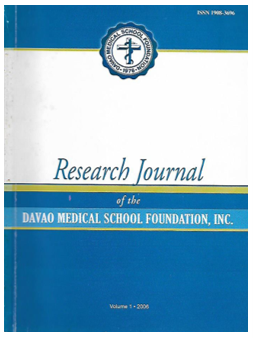AUTHOR
Marlina C. Lacuesta, PhD
KEYWORDS:
case study, program implementation, family planning, reproductive health, community medicine
ABSTRACT
This five-year study examines the factors that affect the sustainability of a client-centered family planning/reproductive health (FP/RH) program implemented by the Department of Health (DOH) in Davao del Norte and Compostela Valley. Four data sets were taken to draw the indicators of program sustainability: before the intervention study started (SA1 in late 1997); six months after the intervention was introducted (SA2 in 1998); two years after the intervention started (SA3 in 2000); and three years after the culmination of the project (SA4 in 2002). Situational analyses, focus group discussions, and interviews were used as data sources. Thriry-two of the forty targeted health providers served as the units of analysis. Client perception was utilized to determine how adoption of QOC was sustained. In-depth interviews of key health officials and program managers provided insights into the particulars of implementing the intervention. Study results revelased that the adoption of QOC was sustained – albeit at a slow rate. No significant increase was observed up to the second year of implementation of the project, except for the two elements of the QOC: information exchange and choice. Overall, the factors conceptually correlated to sustainability of adoption were found not to correlate with QOC when analyzed quantitatively. However, significant increase was evident three years after the withdrawal of intervention support. This could be explained by the fact that the GATHER approach used by the health providers mediated the transfer of knowledge needed for health workers to be creative despite limited support and lack fo funds and materials. The study recommends the following: integrate other maternal and child health services in sustaining QOC; use of a structed approach in conducting operation research on QOC which integrate maternal and child health services; and use of GATHER in other health programs, including the extensions of QOC to the private sector and its integration to the academic curricula of health-related professions.


